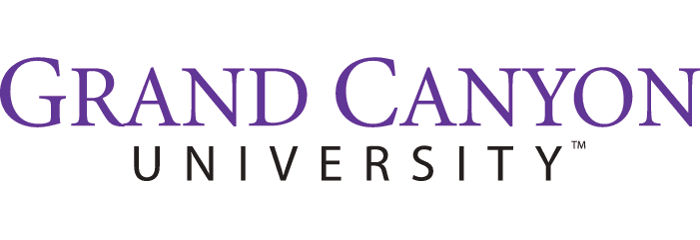Guide to Nursing Certifications
Nurses work in every healthcare setting and perform a huge variety of tasks. It's not possible for each of them to be an expert in every aspect of nursing practice, so specialized organizations offer certifications in particular areas. Each certification testifies to the holder's expertise in a set of concentrated knowledge and skills. No matter what type of nursing program you attend, you'll have opportunities to continue advancing your knowledge and gain credentials that may help you market yourself more effectively.
What Is a Nursing Certification?
Professional certifications are credentials that individuals can earn to attest to their expertise in a focused area of their field. The nursing discipline features dozens of certifications, which help nurses specialize in everything from childbirth education and neonatal care to gerontological practice.
Certifications are often targeted to nurses with a specific level of education and experience. For example, if you earned certification in dialysis as a licensed practical nurse (LPN) and then completed a Bachelor of Science in Nursing (BSN), you might decide to seek the equivalent certification for registered nurses (RNs) because your scope of practice will have changed. You can also gain additional credentials as you acquire expertise and change jobs; many nurses pick up multiple certifications during their careers.
Why Is It Important to Get a Nursing Certification?
By speaking to your skills and expertise, certifications might potentially benefit your nursing career in a couple of key ways. But they also come with monetary and opportunity costs, so it's worth examining these as well.
What Are the Benefits of Obtaining a Nursing Certification?
There are three main advantages to nursing certifications:
A certification might help distinguish you from other candidates in the job market.
You may need a certification to practice in some specialties, such as psychiatric-mental health nursing.
Employers may offer pay increases to nurses who demonstrate professional growth by earning a certification.
Are Nursing Certifications Worth It?
Ultimately, your answer to this question won't be identical to anyone else's, because your work, family, and financial circumstances are unique. You can consider the following points as you weigh the decision to study for a certification.
With over 640,000 LPNs and 3 million RNs in the U.S., it helps to stand out when applying for jobs. About two-thirds of RNs don't hold certifications, so one or more specialty credentials may be one feature of your resume that distinguishes it from others.
However, certifications cost significantly less than enrolling in an advanced degree program, which can run you tens of thousands of dollars a year and much more of a time commitment.
Depending on your employer, a certification may help you make a case for a salary increase.
It takes time and money to pursue specialty certifications, including exam registration fees and any certification program test-preparation materials.
List of Certifications for Nurses
You can choose from more than 150 certifications during your nursing career. Your interests and career path will largely dictate which ones you consider, but it's worth looking at some of the most popular options at each level. Each of these credentials needs periodic recertification, which usually requires you to demonstrate recent experience with the subject matter.
Licensed Practical Nurse Certifications
LPNs typically hold a certificate rather than a degree, and their certifications often call for less professional experience than those for RNs or APRNs.
| Certification | Organization | Purpose |
|---|---|---|
| IV Therapy | National Association for Practical Nurse Education and Service, Inc. (NAPNES) | For LPNs authorized to give medication intravenously |
| Long-Term Care | NAPNES | Tests an LPN's ability to treat patients with lasting medical challenges, including but not limited to older adults |
| Pharmacology | NAPNES | For LPNs in states where they're trusted to dispense medication |
| Wound Care | National Alliance of Wound Care and Ostomy | Tests knowledge of skin injuries, including pressure injuries in long-term patients |
Registered Nurse Certifications
RNs usually hold an associate degree in nursing or a BSN. Their certifications often require at least two years or several thousand hours of experience in the focus area being tested.
| Certification | Organization | Purpose |
|---|---|---|
| Critical-Care Registered Nurse (CCRN) (Adult) | American Association of Critical-Care Nurses | For RNs or APRNs who care for seriously ill or injured adults, such as in ICUs or trauma units; also available in Pediatric and Neonatal varieties |
| Certified Perioperative Nurse (CNOR) | Competency & Credentialing Institute | Tests essential skills of RNs who work in operating rooms, including transplant or trauma nurses |
| Holistic Nurse - Board Certified | American Holistic Nursing Credentialing Corporation (AHNCC) | For nurses who want to promote total wellness and health, not just treat the patient's immediate symptoms |
| Legal Nurse Consultant Certified | American Legal Nurse Certification Board | Certifies RNs to consult with attorneys and testify in court on medical questions |
| Nurse Executive | American Nurses Credentialing Center (ANCC) | For RNs who supervise or manage nurses or other staff at their facility; also available in Advanced form for nurse executives with more experience |
Advanced-Practice Registered Nurse Certifications
APRNs have either a Master of Science in Nursing (MSN) or Doctor of Nursing Practice (DNP) degree and years of experience, so their certifications have the most stringent eligibility criteria.
| Certification | Organization | Purpose |
|---|---|---|
| Advanced Oncology Certified Nurse Practitioner | Oncology Nursing Certification Corporation | Tests a nurse practitioner's knowledge of cancer care; can be adult focused or across the lifespan |
| Advanced Practice Holistic Nurse - Board Certified | AHNCC | For APRNs who want to promote holistic wellness — a more advanced version of the RN certification |
| Dermatology Certified Nurse Practitioner | Dermatology Nurses' Association | To attest to a nurse practitioner's expertise in all aspects of dermatological care |
| Family Nurse Practitioner | ANCC | For nurse practitioners serving as primary care providers across the lifespan |
Nursing Certification Requirements
Different certifications may have similar costs and eligibility requirements, but no two are exactly the same. No matter what certification you choose, you'll need to demonstrate a certain level of nursing education or clinical practice, pay a testing fee, and pass a comprehensive exam on the subject matter.
Below, we've compared two popular credentials as an example.
| CCRN | CNOR |
|---|---|
| 1,750-2,000 hours of experience caring for acutely or critically ill patients at the appropriate age level | At least 2,400 hours of perioperative nursing practice over at least two years |
| Pay either a $245 or $360 fee depending on whether you're an AACN member | Pay a fee of $395 the first time you test and $445 on a subsequent attempt |
| Pass a computer-based exam with 150 questions at a testing center or remotely via live proctor | Pass a computer-based exam with 200 multiple-choice questions at a testing center or remotely via live proctor |
FAQs About Nursing Certifications
Why Is It Important to Get a Nursing Certification?
A certification is a stamp of expertise that may help you market yourself to new employers or make a case for promotion or a raise to your current employer. Some certifications may even be necessary to practice specific types of nursing.
What Certifications Do You Need as a Nurse?
This depends on what kind of nursing you want to do. Some nursing specialties require individuals to hold certifications before they can practice, such as nurse midwives. This is more common at the APRN level.
In other cases, certifications may be useful but not required. For example, you might pursue a gerontology, stroke, or continence care certification if you plan to work with older adults in long-term patient care facilities, but none of these are strictly necessary for all employers.
What Is the Easiest Nursing Certification to Get?
There's no objective answer to this question. In general, certifications at the LPN level require fewer hours of experience before you're eligible for the exam. However, the test itself may not be easier than an exam for RNs or APRNs in the same discipline.
What Is the Most Expensive Nursing Certification?
The NSPM exam is among the costliest nursing certification at $1,500. This exam tests certified registered nurse anesthetists on their knowledge of nonsurgical pain management. Certification exams more commonly cost $200-400.
Related Articles
Types of Nurses
Discover the five main types of nurses and compare education requirements, specializations, jobs, and salaries, and find out which nurses are in demand.
By OnlineU Staff Writers | 6/23/2022



